Keeping up with the times and staying inspired matters a lot these days, doesn’t it? And this is especially true when we talk about environmental issues. This is where the power of reading shines. Books on environmentalism are not just collections of facts and figures; they are gateways to understanding the intricate balance of our natural world and the impact of our actions on it.
Why is this important? Because knowledge is the first step towards change. By delving into the pages of environmental books, we gain insights into the challenges our planet faces – from climate change to biodiversity loss. These books offer not just a diagnosis of the problems but also present solutions, innovations, and the inspiring stories of people and communities making a real difference.
For anyone interested in green energy and sustainable living, these books are invaluable. They help us understand the ‘why’ behind the choices we make, whether it’s opting for renewable energy sources or reducing waste. They empower us with the knowledge to make informed decisions and to advocate for policies and practices that protect our environment.
So, whether you’re a long-time green energy enthusiast or just starting to explore how you can contribute to a healthier planet, these 18 must-read environmental books are for you. They’re about opening our eyes to the beauty and fragility of our world and inspiring us to be the change we wish to see.
Today a reader, tomorrow a leader.
Margaret Fuller
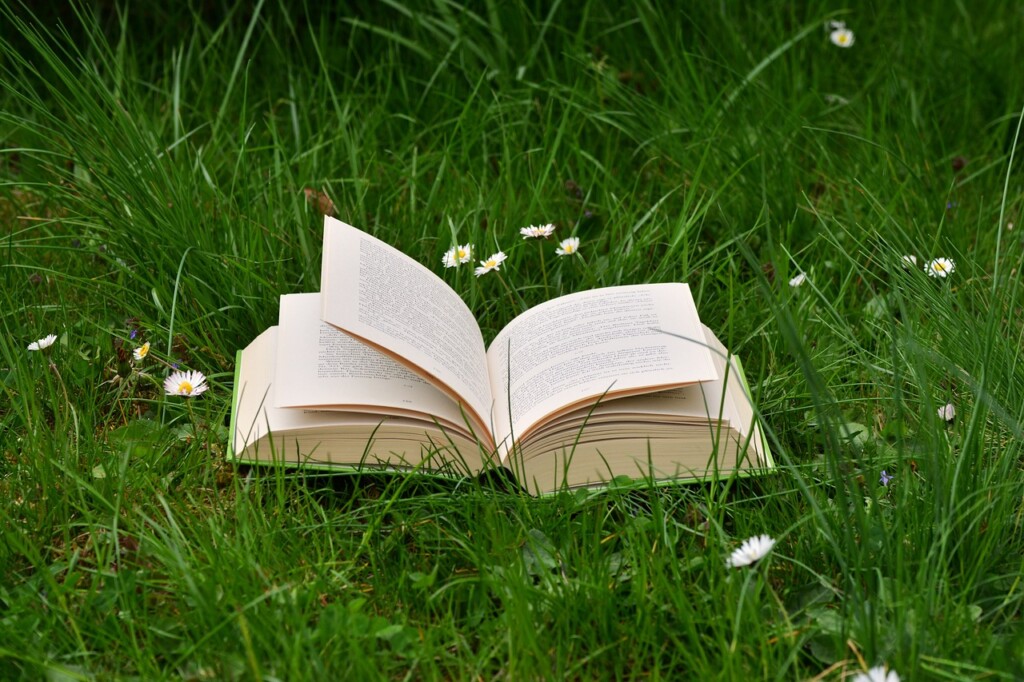
Published in 1989, “The End of Nature” delves into the intricate and evolving relationship between humans and the natural world. The book, authored by Bill McKibben, presents a thought-provoking perspective on how nature, once seen as a force independent of human influence, has now been significantly altered by human activities. McKibben poignantly expresses the loss of the concept of wilderness, illustrating how every corner of nature has been touched by human presence.
In this compelling narrative, the book explores the diminishing value and integrity of natural environments, a change driven by human intervention. McKibben emphasizes that the very essence of wilderness and unspoiled nature, once considered pure and untouchable, has been compromised. He asserts that addressing these environmental challenges necessitates a profound transformation in our perception and interaction with the natural world. The book encourages readers to rethink their relationship with nature, advocating for a new paradigm where humans coexist with nature in a more sustainable and respectful manner. Through this shift, McKibben hopes to inspire actions and policies that can restore the balance and beauty of the natural world, ultimately leading to a more harmonious and sustainable future.
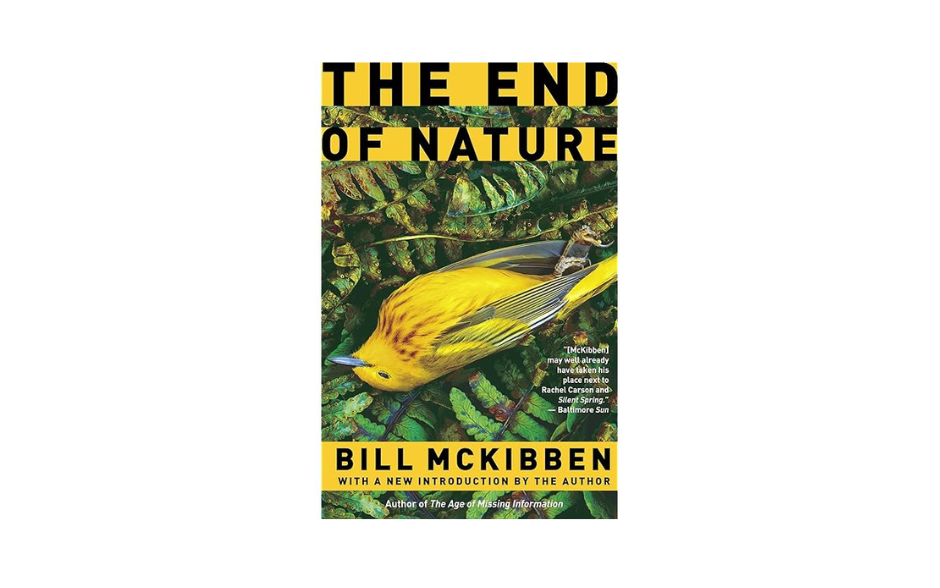
There is a tendency at every important but difficult crossroad to pretend that it’s not really there.
Bill McKibben, The End of Nature
“Braiding Sweetgrass,” authored by Robin Wall Kimmerer, an Indigenous writer from the Citizen Potawatomi Nation, offers a unique perspective on the bond between humans and nature. In this enlightening book, Kimmerer weaves together wisdom from her Native American heritage with the Western viewpoint on flora and fauna. Her aim is to highlight the crucial roles plants and animals play in our lives and in the broader ecosystem.
Throughout the book, Kimmerer brings to light the deep lessons that can be learned from the natural world. She connects these teachings with various narratives, including Indigenous creation stories, to enhance our understanding of the environment. By doing so, she seeks to broaden the reader’s ecological awareness, encouraging a more profound respect and connection with the Earth.
“Braiding Sweetgrass” is more than just an exploration of environmental themes; it’s a celebration of the harmony that can exist between humans and the natural world. This compelling work was recognized for its significant contribution to nature writing, earning the prestigious 2014 Sigurd F. Olson Nature Writing Award. Through her storytelling, Kimmerer invites readers to embrace a more integrated and sustainable way of living, rooted in respect and appreciation for the natural world.
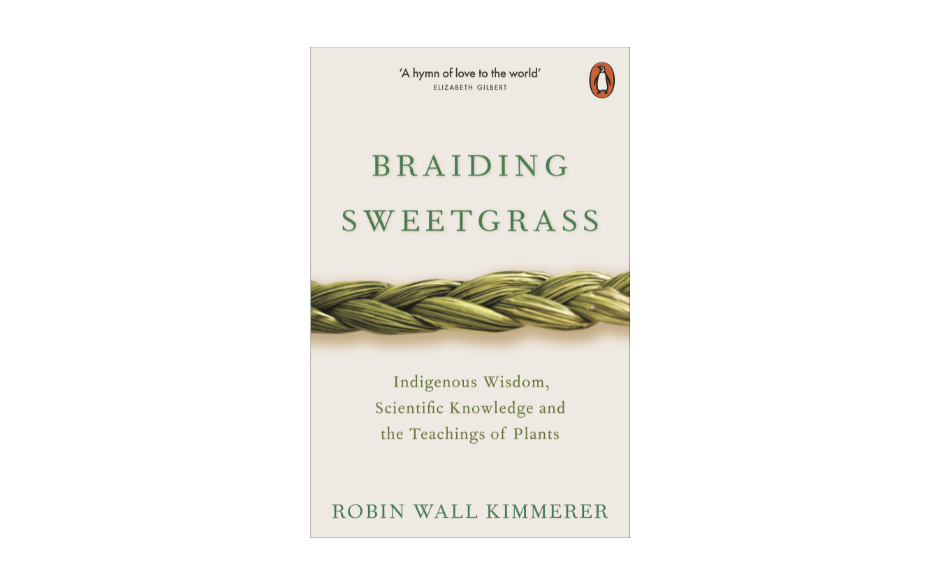
Even a wounded world is feeding us. Even a wounded world holds us, giving us moments of wonder and joy. I choose joy over despair. Not because I have my head in the sand, but because joy is what the earth gives me daily and I must return the gift.
Robin Wall Kimmerer, Braiding Sweetgrass
“Silent Spring,” penned by Rachel Carson, stands as a pivotal piece in environmental literature, playing a key role in catapulting environmental concerns into the public eye. This groundbreaking work centers around the adverse impacts of pesticides on the environment, with a particular focus on DDT, a widely used insecticide until its ban in 1972.
Carson’s book is renowned for its compelling and scientifically grounded exposition of how indiscriminate pesticide use was wreaking havoc on ecosystems. By vividly illustrating the dire consequences on wildlife and human health, “Silent Spring” sparked a significant shift in public consciousness and policy. Its publication led to a critical reevaluation of pesticide policies in the United States, ultimately contributing to the establishment of the Environmental Protection Agency (EPA).
“Silent Spring” is more than just a critique of pesticide use; it’s a clarion call for a more responsible and informed approach to environmental stewardship. Carson’s eloquent narrative bridged the gap between scientific findings and public understanding, igniting a movement that demanded greater accountability for environmental impacts. This book not only triggered policy changes but also inspired generations to advocate for a healthier, more sustainable relationship with our planet.
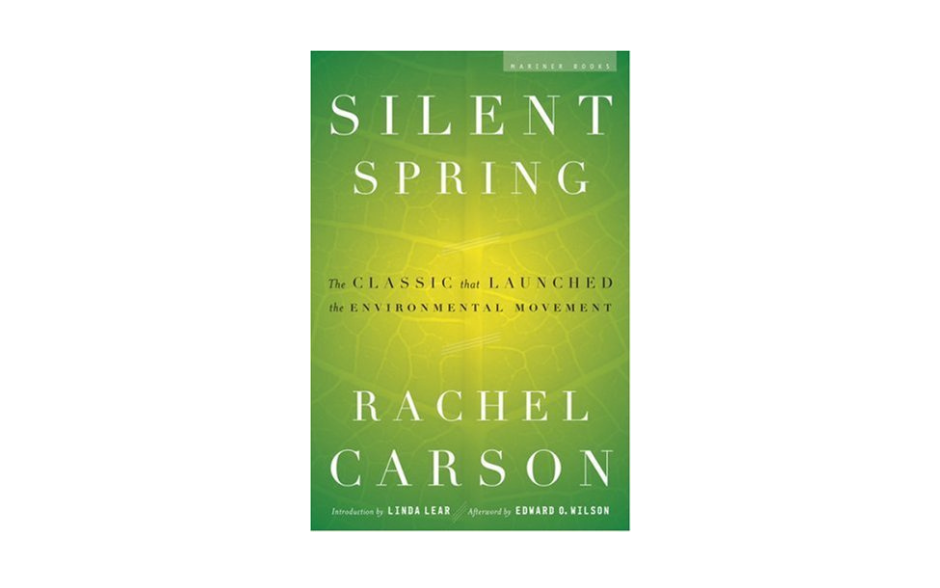
We stand now where two roads diverge. But unlike the roads in Robert Frost‘s familiar poem, they are not equally fair. The road we have long been traveling is deceptively easy, a smooth superhighway on which we progress with great speed, but at its end lies disaster. The other fork of the road — the one less traveled by — offers our last, our only chance to reach a destination that assures the preservation of the earth.
Rachel Carson, Silent Spring
David Wallace Wells’ “The Uninhabitable Earth” offers an unflinching examination of humanity’s impact on our planet and the daunting consequences we face if current trends continue. The book boldly confronts the reality of climate change, emphasizing that the measures currently in place are insufficient to avert its catastrophic effects. Wells delves into the calamities that have already struck due to climate change, providing a stark glimpse into a future marked by further environmental devastation.
The opening line of the book, “It is worse, much worse, than you think,” sets a sobering tone for the narrative that unfolds. Wells paints a vivid picture of what the world might look like by the year 2100 if our trajectory remains unchanged. Through a blend of scientific research and compelling storytelling, “The Uninhabitable Earth” serves as a wake-up call, urging readers to acknowledge the severity of the crisis and the urgent need for transformative action.
The book is not just a catalog of future horrors but also a critical analysis of how our current practices are paving the way for a drastically altered world. Wells’ work challenges us to confront the uncomfortable truths about climate change and consider the legacy we are creating for future generations. It is a call to action, pushing for a reevaluation of our relationship with the Earth and a commitment to making sustainable and significant changes.
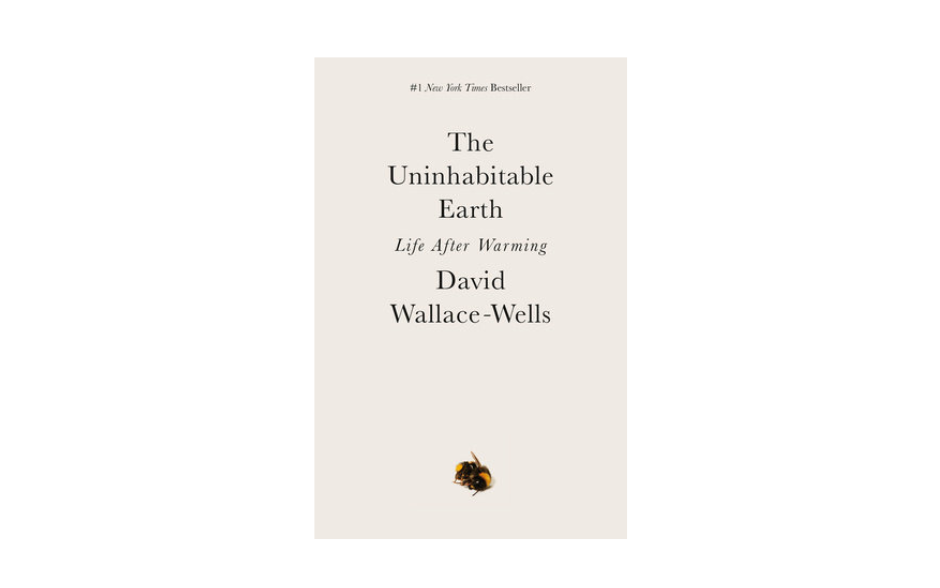
“Merchants of Doubt,” authored by science historians Naomi Oreskes and Erik M. Conway, delves into the disturbing trend of how scientific facts have been obscured by misinformation in several major public health and environmental issues. The book draws striking parallels between the global warming debate and past controversies such as tobacco smoking, acid rain, and DDT.
This enlightening work exposes how a group of influential scientists, motivated by political and corporate interests, orchestrated campaigns to mislead the public and policymakers about the truth of these issues. These actions not only cast doubt on well-established scientific findings but also significantly delayed crucial policy changes and advancements in environmental protection.
The authors meticulously detail the tactics used to undermine scientific consensus on global warming and the depletion of the ozone layer, revealing a concerning pattern of deception and manipulation. As former Vice President Al Gore noted, “Merchants of Doubit” is an essential read for anyone concerned about the integrity of science and democracy in America. The book serves as a sobering reminder of the power of misinformation and its potential to hinder progress in addressing critical global challenges. Through their comprehensive research, Oreskes and Conway urge readers to recognize the importance of basing decisions on sound science and to be vigilant against efforts to distort the truth for personal or political gain.
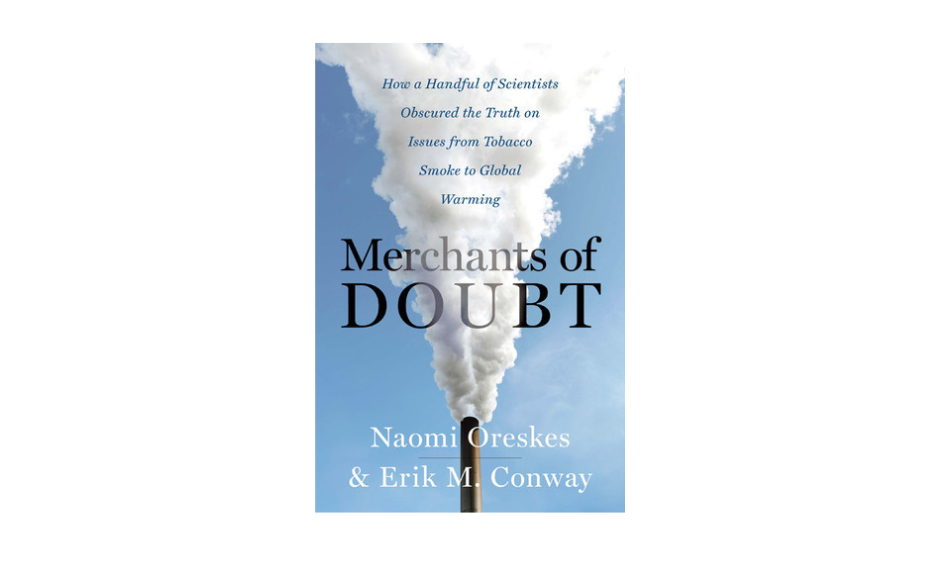
For the past 150 years, industrial civilization has been dining on the energy stored in fossil fuels, and the bill has come due. Yet, we have sat around the dinner table denying that it is our bill, and doubting the credibility of the man who delivered it.
Naomi Oreskes, Merchants of Doubt
“Jonathan Safran Foer’s “Eating Animals” delves deeply into the world of food ethics, exploring the complexities of farming practices, vegetarianism, veganism, and the moral considerations surrounding our dietary choices. This book, part investigative journalism and part personal narrative, probes into the myriad implications of meat consumption, examining its impact not just on our health, but also on the environment and animal welfare.
Foer thoughtfully navigates the subject, presenting a philosophical perspective that connects our eating habits with our core ethical values. He refrains from outright condemning meat consumption; instead, he presents a nuanced exploration of its broader context. This includes the realities of industrial farming and its environmental repercussions, challenging readers to reflect on the consequences of their food choices.
While Foer doesn’t explicitly advocate for a specific diet, his narrative invites readers to critically assess their own dietary habits. “Eating Animals” serves as a catalyst for introspection, encouraging a deeper understanding of the food we consume and its far-reaching effects. The book is a compelling blend of factual investigation and personal discovery, providing a holistic view of the current state of food production and consumption. Through his exploration, Foer aims to ignite a conversation about responsible and conscious eating, making it a thought-provoking read for anyone interested in the ethical dimensions of their diet.

While it is always possible to wake a person who’s sleeping, no amount of noise will wake a person who is pretending to be asleep.
Jonathan Safran Foer, Eating Animals
In “The Sixth Extinction,” Elizabeth Kolbert presents a compelling narrative that weaves together the history of past mass extinctions with the alarming wave of extinctions currently underway. This groundbreaking book takes a hard look at how human activities are precipitating a global extinction event, likening it to the catastrophic mass extinctions of the past.
Kolbert’s exploration spans various ecosystems and species, including the dire situation of the Panamanian golden frog and the devastating impact of ocean acidification on coral reefs. Through her meticulous research and engaging storytelling, she paints a vivid picture of the current environmental crisis, highlighting the intricate and often fragile relationships between humans and the natural world.
This book has been widely recognized for its outstanding contribution to non-fiction, earning the 2015 Pulitzer Prize for General Non-Fiction and the 2015 Massachusetts Book Award. “The Sixth Extinction” is not just a chronicle of environmental decline; it’s a call to action, urging readers to acknowledge and address the human-induced changes that threaten the diversity of life on our planet. Kolbert’s work is a potent reminder of the urgent need to protect and preserve the natural world, making it an essential read for anyone concerned about the future of our planet and its inhabitants.
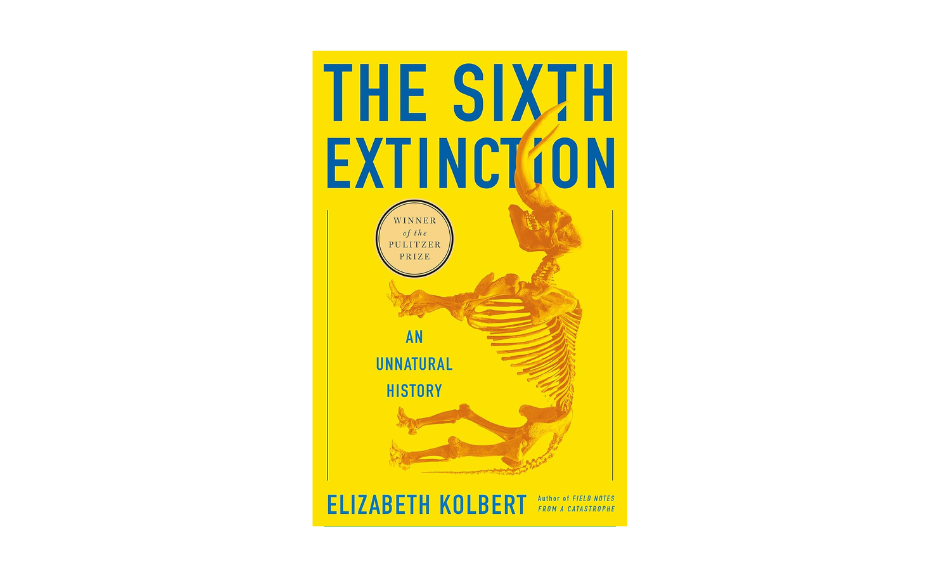
The current extinction has its own novel cause: not an asteroid or a massive volcanic eruption but one weedy species.
Elizabeth Kolbert, The Sixth Extinction: An Unnatural History
“An Inconvenient Truth,” authored by former Vice President Al Gore, is a seminal work that brings the critical issue of global warming to the forefront. Merging personal experiences with robust scientific data, Gore effectively illuminates the various facets of climate change, including its political, social, and human implications.
In this influential book, Gore underscores the immediate necessity for collective global efforts to mitigate the adverse effects of climate change on our planet’s delicate ecosystems and its future sustainability. His narrative not only educates but also inspires action, presenting climate change as an urgent challenge that requires a unified response.
Coinciding with the release of the book in 2006 was a documentary film of the same name, further amplifying Gore’s message. The book and film together created a powerful platform, raising public awareness and sparking discussions about environmental policy and individual responsibility. “An Inconvenient Truth” stands as a pivotal contribution to environmental literature, effectively bridging the gap between scientific understanding and public consciousness. It remains a significant work for anyone seeking to comprehend the complexities and urgency of addressing global warming.
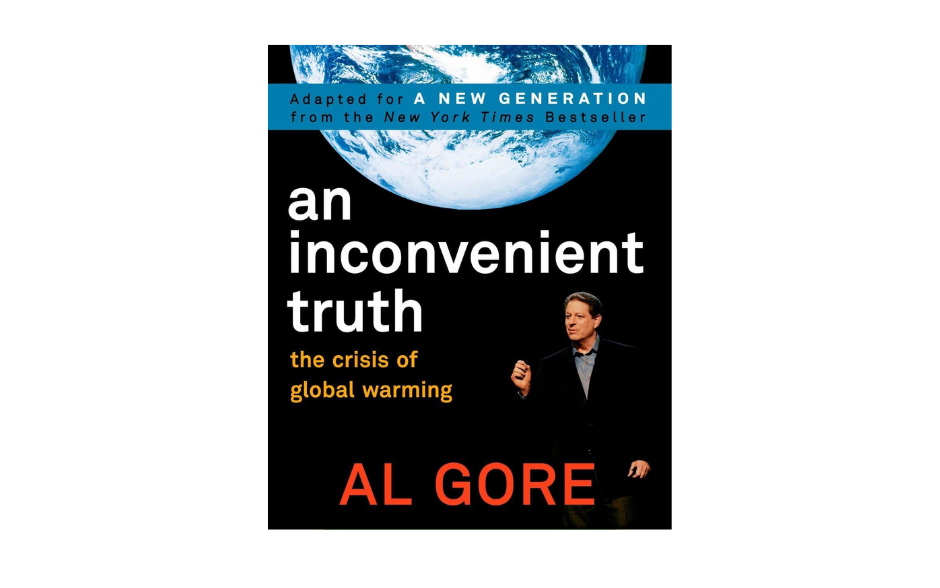
Global warming, along with the cutting and burning of forests and other critical habitats, is causing the loss of living species at a level comparable to the extinction event that wiped out the dinosaurs 65 million years ago. That event was believed to have been caused by a giant asteroid. This time it is not an asteroid colliding with the Earth and wreaking havoc: it is us.
Al Gore, An Inconvenient Truth
“Losing Earth: The Decade We Could Have Stopped Climate Change”, a title that poignantly captures the essence of Nathaniel Rich’s book, delves into a critical period in the history of climate change. This work meticulously examines the 1980s, a pivotal decade when the realities of global warming became clear, yet was followed by an era of persistent climate denialism that has significantly contributed to our current environmental predicament.
Rich’s narrative uncovers how the fossil fuel industry orchestrated disinformation campaigns to thwart climate policies. At the same time, he highlights the tireless efforts of scientists and influential advocates, including former Vice President Al Gore and scientist James Hansen, who fought for meaningful climate action and policy change.
The book has been lauded for its insightful and well-researched approach to this complex issue, receiving recognition from the Society of American Journalists and the American Institute of Physics, Science, and Communication Award. “Losing Earth” not only chronicles a missed opportunity to address climate change but also serves as a sobering reflection on the consequences of ignoring scientific evidence. It’s a compelling call to learn from past mistakes and reinvigorate our efforts to safeguard the planet’s future.
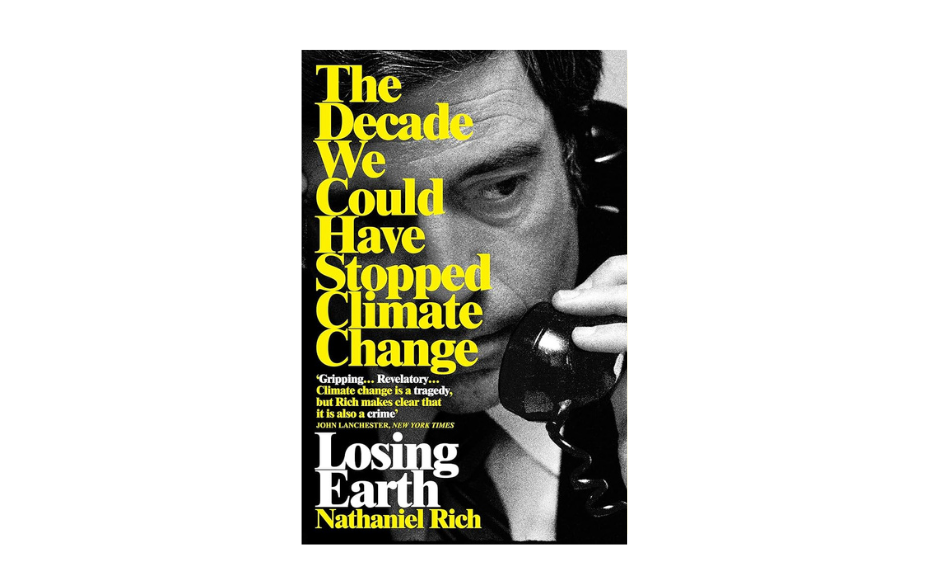
The relationship between those who have burned the most fossil fuels and those who will suffer the most from a warming climate is perversely inverted. The inversion is both chronological (younger generations pay for their elders’ emissions) and socioeconomic (the poor suffer what the rich deserve).
Nathaniel Rich, Losing Earth: A Recent History
“No One Is Too Small To Make A Difference” is a compelling compilation of 11 speeches by the young and influential climate activist, Greta Thunberg. Delivered to prestigious platforms including the United Nations, the European Union, and the World Economic Forum, these speeches resonate with the urgency and gravity of the climate crisis.
Greta Thunberg, who was just 15 years old when she initiated the School Strike for Climate, also known as Fridays for Future, has become a global symbol of youthful determination and activism. Her relentless advocacy for climate action has sparked a worldwide movement, drawing attention to the pressing need to address climate change for the sake of future generations.
Through her powerful words, Thunberg challenges world leaders, policymakers, and individuals alike, calling for immediate and decisive action to combat the environmental challenges facing the planet. Her speeches, collected in this book, serve not only as a testament to her impactful activism but also as an inspiration to all, asserting that no individual is too small to contribute to the fight against climate change. The book encapsulates the spirit of a generation demanding change, showcasing how one young person’s voice can echo around the world, galvanizing a global call to action.
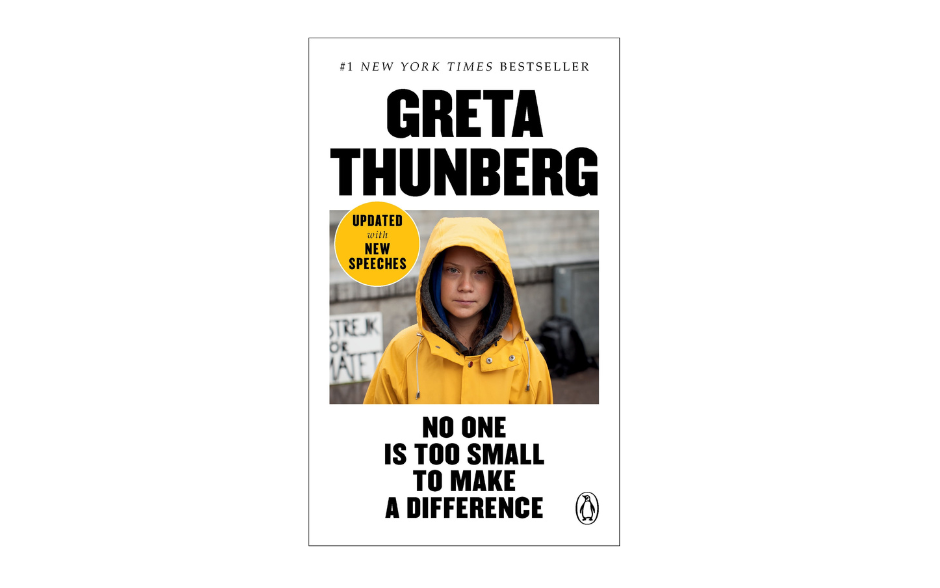
Some people say that I should study to become a climate scientist so that I can ‘solve the climate crisis’. But the climate crisis has already been solved. We already have all the facts and solutions. All we have to do is to wake up and change.
Greta Thunberg, No One Is Too Small to Make a Difference
“How to Be a Good Creature,” by acclaimed author Sy Montgomery, is a book that beautifully intertwines the worlds of nature and storytelling. Alix Morris, Earthwatch’s director of communications, recalls being captivated by Montgomery’s work since reading “The Soul of an Octopus,” praising her ability to delve deep into the consciousness of animals and bring forth profound insights about the natural world.
Montgomery’s book opens with a nod to Earthwatch, crediting the organization for influencing her successful journey as a science writer and naturalist. She recounts her initial foray into the field with an expedition tracking emus in the Australian Outback. Throughout “How to Be a Good Creature,” Montgomery guides readers on a journey to understand and learn from various creatures, teaching us to perceive the wild world through a different lens. Her writing, enriched with humor and poetic flair, is not just an exploration of the animal kingdom but also a reflection on our relationship with the natural world.
This book is more than just a collection of animal stories; it’s an invitation to reconsider our place in the universe and deepen our appreciation for the myriad forms of life with which we share our planet. Montgomery’s engaging and insightful narrative makes “How to Be a Good Creature” a captivating and enlightening read, offering a unique perspective on the lessons we can learn from the creatures around us.
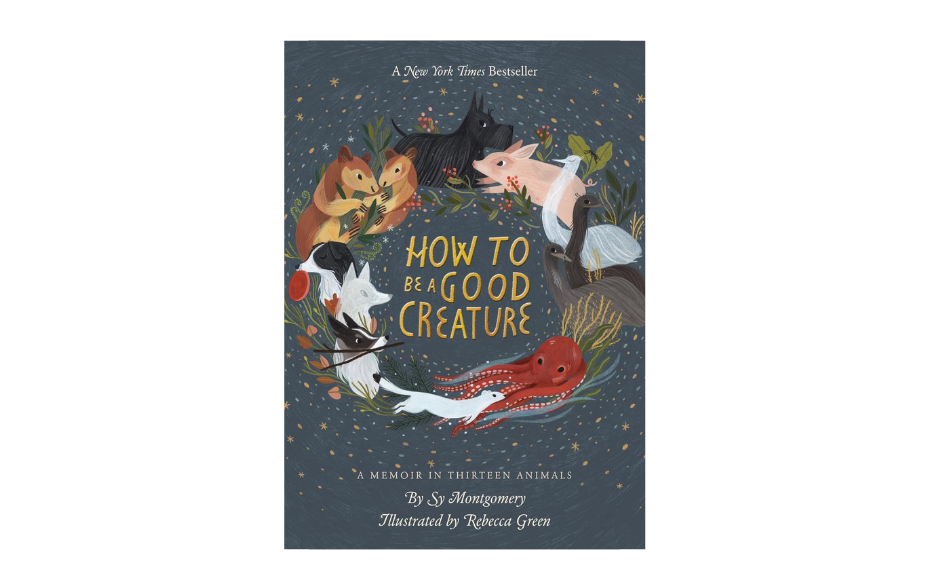
I am still learning how to be a good creature. Though I try earnestly, I often fail. But I am having a great life trying…
Sy Montgomery, How To Be A Good Creature
Eugene Linden, in “The Winds of Change: Climate, Weather, and the Destruction of Civilization,” offers a captivating look into the cutting-edge research in the field of global warming. His book is not just informative but also engaging, blending a narrative that is at once gripping, alarming, and occasionally infused with humor. Through his storytelling, Linden brings the scientific aspects of climate change to life.
The book addresses some of the most pressing and complex questions of our time: the nature of change, the reasons behind societal fear of an uncertain future, and the impact of climate on the rise and fall of civilizations. Linden’s exploration goes beyond the basic science of climate change, providing a comprehensive view of its potential to shape our world.
“The Winds of Change” serves as a crucial primer on the subject, offering readers a deep understanding of climate change and its possible future consequences. More than just a scientific text, it acts as a clarion call, urging readers to pay attention to the warnings about climate change and its capacity to influence the course of human civilization. Linden’s work is essential for anyone seeking to grasp the full scope of the challenges and opportunities presented by our changing climate.
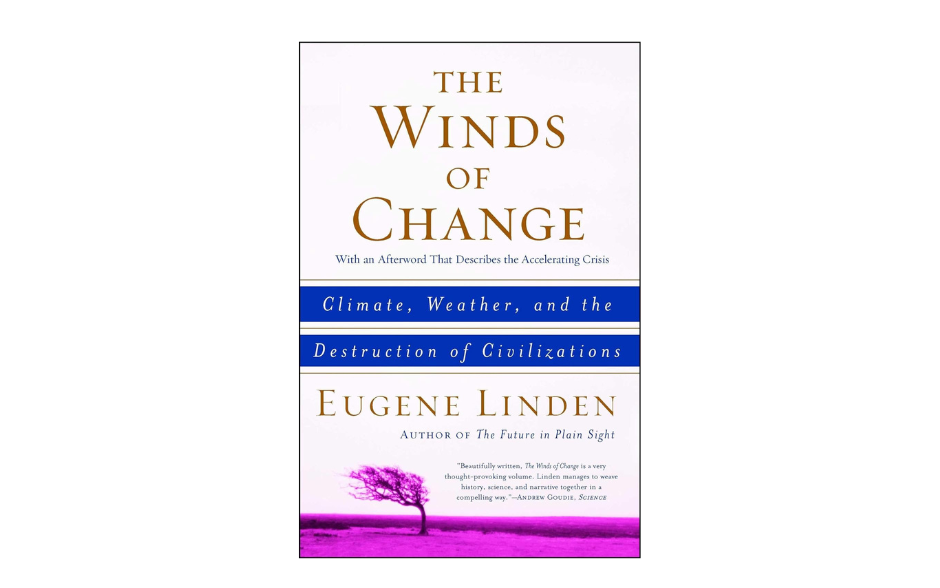
“Sustainability Made Simple: Small Changes For Big Impact” by Rosaly Byrd and Lauren DeMates is an ideal read for those new to environmental studies, particularly sustainability, and are seeking a starting point. The book offers practical insights into how minor lifestyle adjustments can significantly impact one’s carbon footprint and contribute positively to the planet.
The authors delve into the pressing issue of climate change and discuss actionable strategies to reduce carbon emissions in daily life. “Sustainability Made Simple” is not confined to environmental science students; it’s a guide for anyone eager to participate in environmental conservation.
Through a comprehensive exploration of topics such as air pollution, deforestation, climate change, and water pollution, the book illustrates how these issues intertwine with sustainable living. It emphasizes that a sustainable lifestyle is not only beneficial for the planet but also for personal health, and it reassures readers that achieving sustainability doesn’t require costly life changes. The book is a valuable resource for understanding the impact of everyday choices on the environment and offers guidance on simple yet effective ways to live more sustainably.
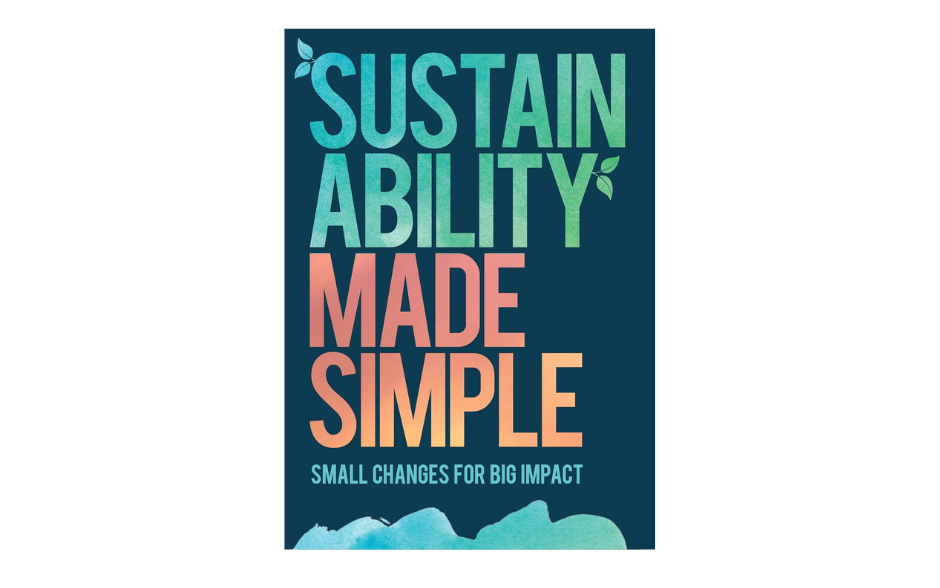
In “Don’t Even Think About It: Why Our Brains Are Wired to Ignore Climate Change,” George Marshall offers an intriguing exploration of human psychology in the context of climate change. The book delves into the cognitive and emotional reasons behind why people often fail to take action against climate change, despite understanding its severity.
Marshall takes readers on a journey through the human mind and brain, uncovering the psychological barriers that hinder our response to climate change. He skillfully explains the complexity of human behavior and its relationship with environmental issues, highlighting how our brains are not naturally equipped to process the distant, abstract nature of climate change.
This book is not just about the science of climate change; it’s an examination of why that science often doesn’t translate into action. Marshall addresses the paradox of knowledge without action and investigates why, despite being the biggest threat to our civilization, climate change is often met with apathy or denial. Through his insightful analysis, Marshall sheds light on the inherent challenges in comprehending and responding to climate change, making it a must-read for anyone interested in understanding the psychological dimensions of environmental action.
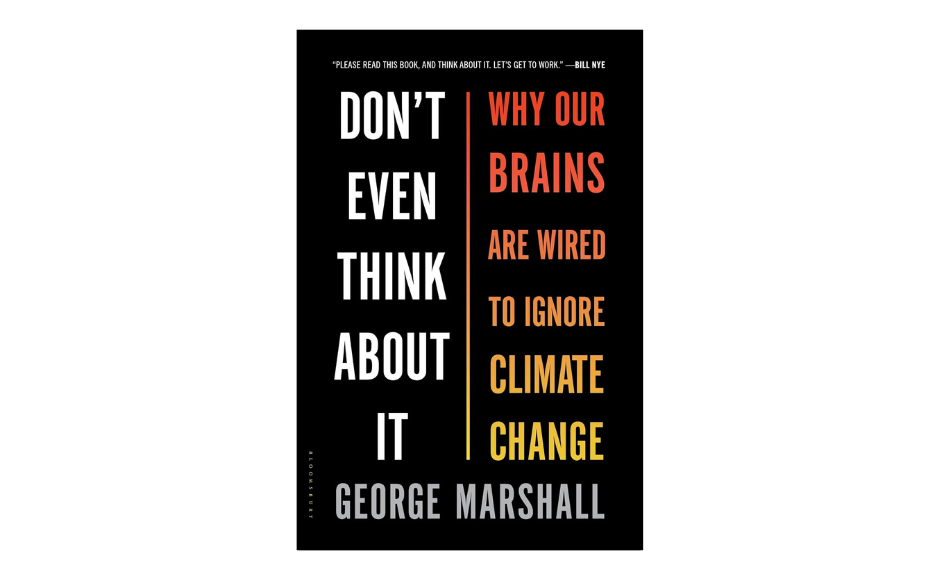
The bottom line is that we do not accept climate change because we wish to avoid the anxiety it generates and the deep changes it requires. In this regard, it is not unlike any other major threat. However, because it carries none of the clear markers that would normally lead our brains to overrule our short-term interests, we actively conspire with each other, and mobilize our own biases to keep it perpetually in the background.
George Marshall, Don’t Even Think About It
“New York 2140” by Kim Stanley Robinson portrays a future New York City dramatically altered by climate change, with much of the city submerged under rising sea levels. This climate fiction novel vividly imagines a world where Manhattan has turned into a modern-day Venice, exploring life in the partially underwater metropolis. The story centers around the inhabitants of the MetLife Tower, adapted for life in this new environment. Through its narrative, the novel critiques capitalism and unregulated financial systems, depicting a society adapting to profound environmental changes. Robinson’s work offers a thought-provoking look at a possible future scenario, blending scientific speculation with engaging storytelling.
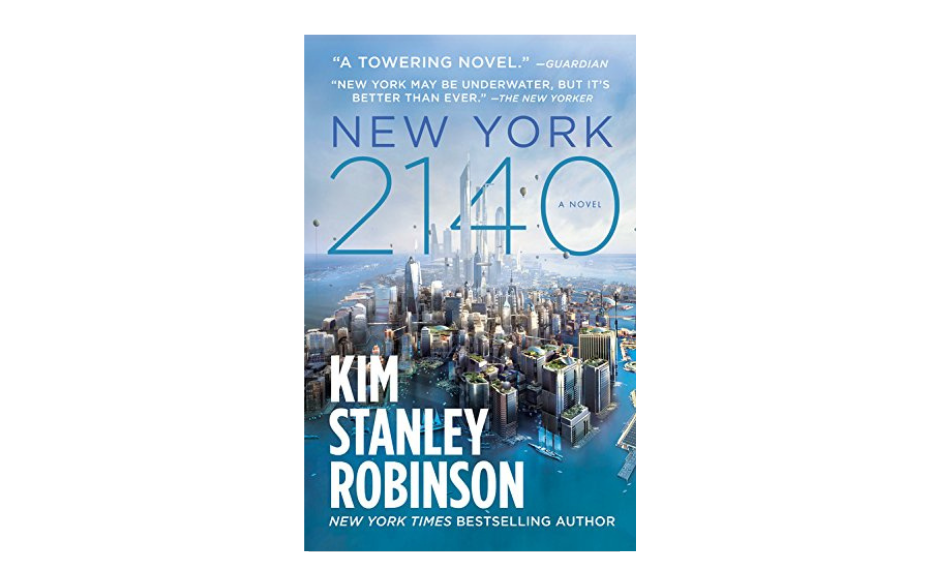
History is humankind trying to get a grip. Obviously not easy. But it could go better if you would pay a little more attention to certain details, like for instance your planet.
Kim Stanley Robinson, New York 2140
Richard Alley’s “The Two-Mile Time Machine” delves into the evolution of our understanding of Earth’s climate history through advanced dating and geological tools. This book illuminates discoveries from around the globe, underscoring their significance in predicting our planet’s future amid escalating temperatures. Alley’s expertise in climatology enriches the narrative, offering a compelling exploration of past climatic events and their implications for present-day climate change challenges. This insightful work provides both a historical journey and a forward-looking perspective on the environment.
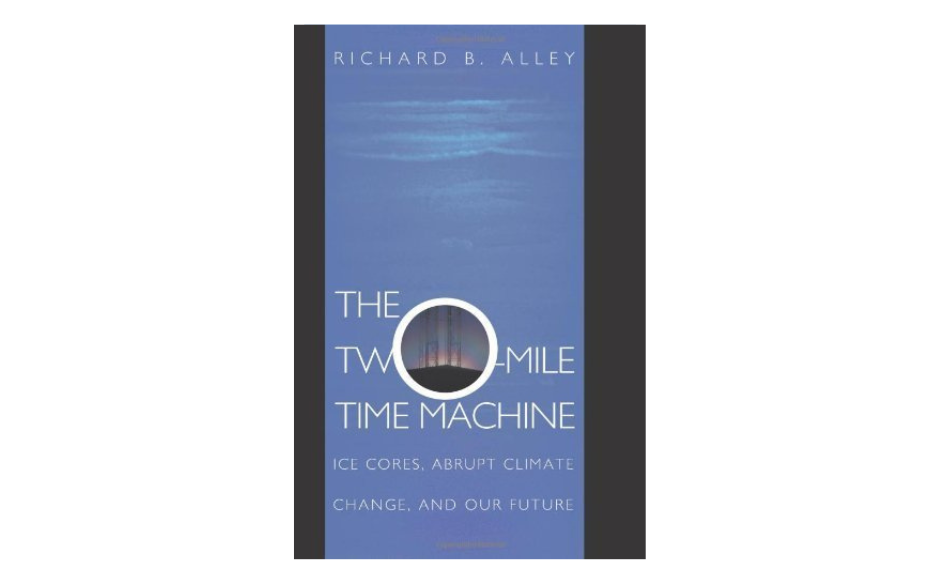
In “This Changes Everything,” Naomi Klein presents a powerful argument that climate change is a critical alarm for overhauling our failing economic system. Klein sees the fight against climate change as an opportunity to address social inequalities, rejuvenate democracies, and rebuild local economies. She critiques the inadequacy of market-based solutions and the shortcomings of mainstream green initiatives, arguing that true change requires a profound shift in economic and cultural priorities.
Klein views the changes needed to respond to the climate crisis not as a burden, but as a chance to heal historical wounds and build better economic systems. The book highlights inspiring movements already enacting these changes, focusing on sustainable, regenerative community-driven initiatives. Klein emphasizes the urgency of action, acknowledging the uncertainty of success but stressing that the direction of this change is still in our hands.
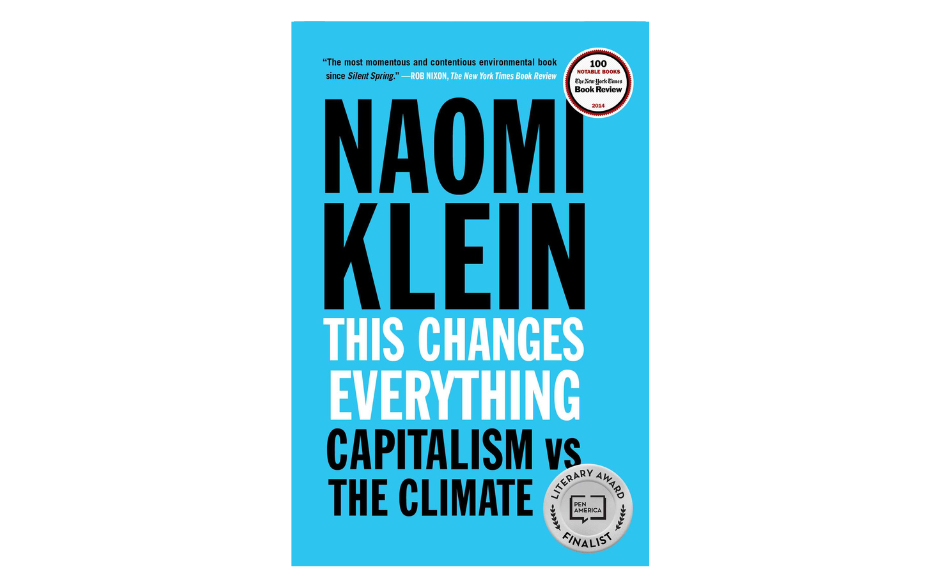
It is a civilizational wake-up call. A powerful message—spoken in the language of fires, floods, droughts, and extinctions—telling us that we need an entirely new economic model and a new way of sharing this planet.
Naomi Klein, This Changes Everything: Capitalism vs. The Climate
“Rising” is a thought-provoking book that brings to light the urgent issue of climate change and its impact on rising sea levels, focusing on the transformation of the United States’ coastlines. It presents a stark reality through firsthand accounts of those living on the front lines of this environmental crisis. From the Gulf Coast to the Bay Area, the book explores the direct effects of climate change on various communities, offering a window into the lives of those who face the difficult decision of retreating or enduring in their changing environments.
This book stands out for its ability to deeply engage and inform readers, highlighting the significant and personal impacts of climate change on both the environment and society. It serves as a crucial read for anyone seeking a deeper understanding of the real-world consequences of climate change and the resilience of communities in the face of rising sea levels.
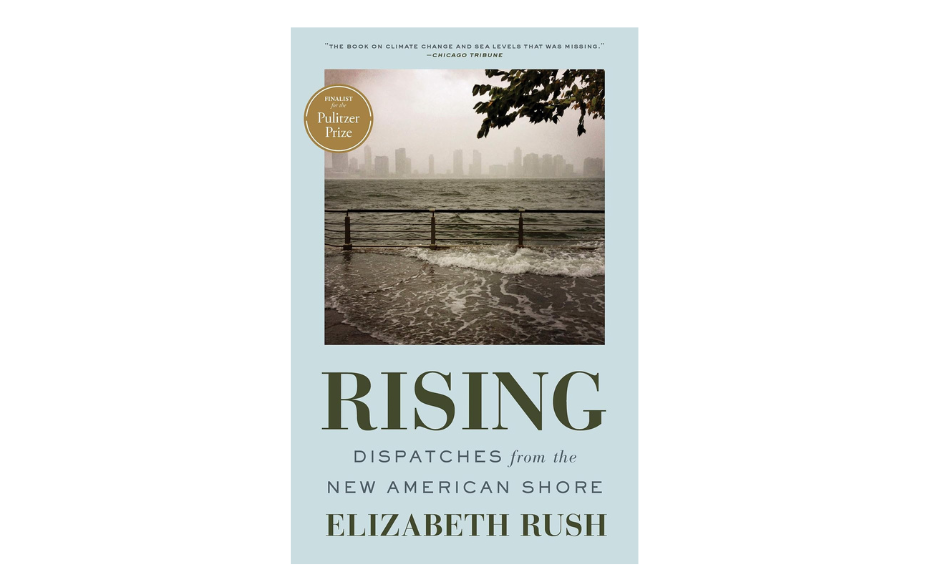
We are individually preoccupied by the lives of those we know and expect to know: our grandparents, parents, children, and, if we are lucky, grandchildren. Which is why it is so fantastically difficult for us to recognize that in our frenzied attempt to keep nearly eight billion people fed, watered, clothed, sheltered, and distracted, we are fundamentally altering the geophysical composition of the planet at a pace previously caused only by cataclysmic events, like the massive asteroid that smashed into eastern Mexico, wiping out the dinosaurs, sixty-five million years ago.
Elizabeth Rush, Rising: Dispatches from the New American Shore
As we conclude our exploration of “18 Must-Read Environmental Books,” it’s evident that these works collectively offer a profound understanding of our planet’s environmental challenges and opportunities. They weave together narratives of urgency and hope, underscoring the reality of climate change and the resilience of both nature and human spirit. These books encourage us to view environmental stewardship not as a burden but as an essential, rewarding part of our existence. They remind us that our actions, big or small, have a significant impact on the Earth’s health.
This collection of literature serves as a powerful reminder of our responsibility to the planet and inspires us to be proactive in shaping a sustainable future. Let’s carry forward the insights and inspirations from these pages, committing to actions that nurture our planet, ensuring a healthier, more sustainable world for generations to come.
Stay a while and read more posts like this
Let’s devote a few minutes to envision our world in 2100. It’s quite a thought experiment, given the dramatic transformations our planet has experienced in...
With climate change looming large, the world is embarking on a quest for solutions to heal our ailing planet. Solar geoengineering emerges as a burgeoning field,...
Taking on parenthood comes with unique choices that factor in more than just our family’s immediate needs. For modern parents, who are not just guardians of...